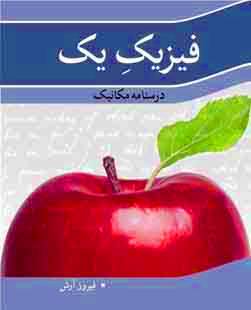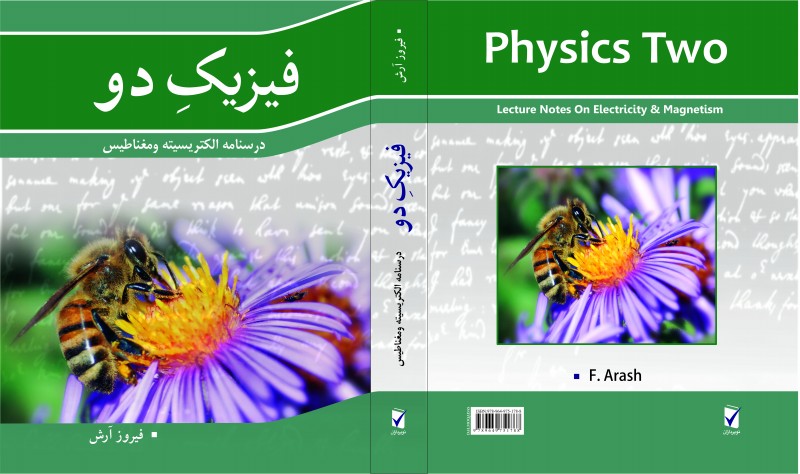 +0 به یه ن
+0 به یه ن
( جواب یک سئوال: من و شاهین (دکتر جباری) به علت شرکت در همایش دیگر در کنفرانس فیزیک ایران در شیراز نخواهیم بود. اما هر دو از حامیان جدی این برنامه و سایر برنامه های انجمن فیزیک هستیم و این انجمن را برای ترویج فیزیک در ایران مفید و لازم می دانیم.)
برای اطلاع از فعالیت های انجمن فیزیک به سایت آن مراجعه کنید.در فضای مجازی اطلاعات غلط شبه علمی زیاد منتشر می شود. سایت انجمن فیزیک منبع موثقی است برای اطلاعات فیزیکی به زبان نسبتا ساده و غیر تخصصی. این سایت را به همه علاقه مندان فیزیک معرفی کنید.
انجمن فیزیک فعالیت های گوناگونی برای ترویج فیزیک انجام می دهد. برای این فعالیت ها نیاز به حمایت مالی دارد. اگر عضو انجمن هستید و به لحاظ مالی در مضیقه نیستید در پرداخت حق عضویت اهمال نکنید. اگر من به عنوان یک استاد دانشگاه که خدا را شکر پرداخت حق عضویت 165 هزار تومان در سال بار مالی سنگین بر دوشم نمی گذارد امروز خسیسی به خرج دهم و آن را از روی رندی و زرنگی پرداخت نکنم فردا فعالیت های انجمن بسته می شود. پس فردا می دانید چه می شود؟! انواع و اقسام اشاعه دهندگان خرافات در خلا منبعی که پاسخگوی سئوالات علمی جامعه در سطح ملی باشد رشد می کنند و به تحمیق مردم می پردازند. پس پسین فردا همون ها می نشینند روی سرمان (تا حدود زیادی همین الان هم نشسته اند. اون وقت از این هم بدتر می شود. نگاهی به کشورها ی همسایه نشان می دهد از بد، بدترها می تواند باشد)!
به عنوان یک فیزیکدان دوست دارم در جامعه زندگی کنم که فروش کتاب زندگی امی نوتر از فروش رمان بامداد خمار پیشی بگیرد. چرا؟! چه اهمیتی برای من دارد؟! می خواهم فداکاری در راه دانش مقبول جامعه افتد نه شلاق زدن خواستگار توسط پدر پولدار دختر در خیابان (یکی از صحنه های بامداد خمار که خیلی از خوانندگان سیصد هزار نفری این رمان به سادگی از کنارش گذشتند و به راحتی پذیرفتند و عادی دانستند). انجمن فیزیک وقتی نمایشگاه عکاسی فیزیکی در سطح ملی برگزار می کند، وقتی کنفرانس دانش آموزی فیزیک هر سال در یکی از شهرهای ایران برگزار می کند، وقتی مجلات ترویج علم منتشر می سازد در واقع ذائقه فرهنگی جامعه را از پایین تغییر می دهد و راه را برای این تغییر تحول اجتماعی فرهنگی هموار می سازد.
در مورد پستر از من سئوال شد که نوشته قدیمی ام را در زیر می آورم:
توجه کنید که پوستر از کلمه ی پُست است و همانند آن تلفظ می شود. به هیچ وجه از کلمه ی فارسی "پوست" نیست که آن را بر وزن "دوست" تلفظ کنید. درواقع درست تر است که آن را به صورت "پُستر" بنویسیم نه "پوستر". ولی چون نگارش به صورت "پوستر" جا افتاده من هم ناگزیر آن را به این شکل نوشتم. در انگلیسی اگر به صورت "پوستر" تلفظ کنید حرف شما را متوجه نخواهند شد.
چند نکته عملی درباره ارائه پوستر
برخی از آنها را خود به تجربه دریافته ام و برخی را از و یا دیگر فیزیکپیشگان پیشکسوت شنیده ام.
1) در تنظیم پوستر (برعکس نوشتن مقاله و یا نوشتن ای-میل علمی)بهتر است شرط ایجاز را رعایت کنیم. باید فقط لب مطلب را در پوستر بگنجانیم . از پرداختن به جزئیات حتی الامکان باید بپرهیزیم. اگر پوستری حاوی مقدار زیادی از جزئیات باشد حوصله بازدید کنندگان را به سر خواهد برد. علاقمندان می توانند برای خواندن جزئیات بیشتر به مقاله رجوع کنند.
2( طبیعی است حسن انتخاب رنگها و جلوه های بصری در موفقیت هر پوستری می توانند نقش کلیدی ایفا کنند. توجه به این جزئیات را "سطح پایین" و یا وقت تلف کردن تلقی نکنید. در کار حرفه ای همه این جزئیات مهمند.
3) تهیه پوستر و آویختن آن تنها قسمت کوچکی از کار ارائه پوستر است. قسمت اصلی کار حضور در کنار پوستر و توضیح درباره پوستر و پاسخ گویی به سئوالات بازدیدکنندگان است. در عرف جامعه فیزیک بین المللی کسی که به هنگام
Poster session
در کنار پوستر خود حاضر نیست شخصی بی مبالات و حتی به دور از ادب تلقی می شود. من در حدی نیستم که خودم در این باره نظری داشته باشم اما از آنان که عمری به برگزاری همایش های بین المللی پرداخته اند و در آداب و
etiquette
این گونه گرد همایی ها صاحبنظرند این گونه شنیده ام.
4(در جلسه پوستر باید خجالت را کنار گذاشت. اگر کسی را دیدیم که به پوستر ما توجه می کند بهتر است جلو برویم و شروع کنیم به توضیح دادن درباره پوستر. معمولا طرف از این کار ما استقبال می کند.
5( در بالای پوستر نام ارائه دهنده و همچنین نام دانشگاه یا موسسه وی حتما باید گنجانده شود.
6( این آخرین توصیه ابتکار خود من است: بهتر است چند نسخه از مقاله مربوطه را با خود داشته باشید و آن را به دست بازدیدکنندگان علاقمند بدهید. تجربه من نشان می دهد که معمولا در اولین فرصت
!یعنی در طی سمینار خسته کننده بعدی مقاله شما خوانده می شود
اشتراک و ارسال مطلب به:

